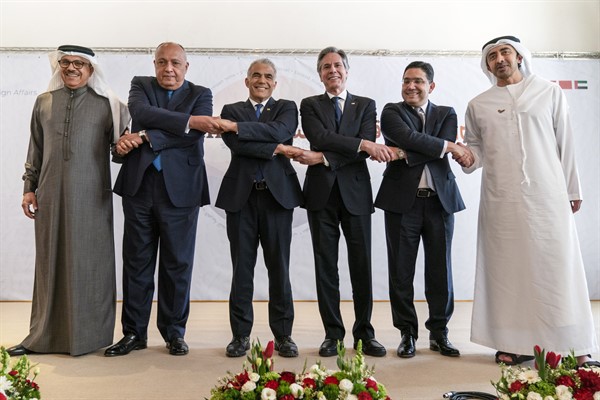DOHA, Qatar—Washington’s partners in the Gulf believe that the United States has fundamentally altered the terms of the deal that has historically governed their relationship. From the period beginning with the end of the Cold War until recently, governments in the Gulf Arab countries considered themselves protected by an ironclad security guarantee provided by the U.S. In exchange, those countries tacitly agreed to leverage their dominance of global oil markets in support of Washington’s policies, particularly at moments of strategic urgency.
There is no mutual defense pact requiring the U.S. military to come to the defense of the Arab oil monarchies, as exists with treaty allies like NATO’s member states as well as Japan and South Korea. But the 1991 campaign to liberate Kuwait from invasion and annexation by the Iraqi forces of Saddam Hussein showcased Washington’s end of the bargain. Similarly, the Gulf Arab monarchs, when called upon over the years, have raised their oil production quotas to benefit the U.S. and its allies. They have also invested a great deal of the returns from their oil wealth in the U.S. economy via their sovereign wealth funds, while also financing U.S. government debt as some of the leading foreign holders of U.S. Treasury securities.
But if this bargain between Washington and its Gulf partners reflected a pragmatic appraisal of shared interests, it was scarcely grounded in mutually shared values or even trust. Many Americans balked at the human rights records of the Gulf Arab countries and blamed Saudi Arabia, in particular, for stoking the Islamist extremism that gave rise to al-Qaida and the 9/11 attacks. For their part, Arab monarchs in the Gulf have chafed at what they regard as a racist double standard, with Washington not subjecting other less important U.S. partners to the same level of scrutiny on human rights issues.

